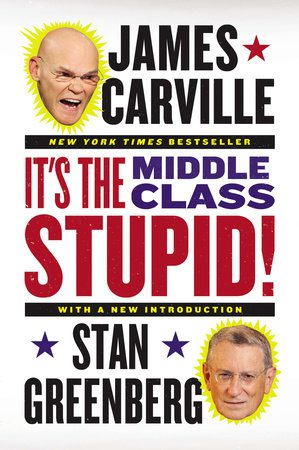In this intensely partisan season, money in politics is one issue that breaks through the partisanship and the campaign media fog. This newbattleground survey, conducted by Greenberg Quinlan Rosner for Democracy Corps and Public Campaign Action Fund in the 54 most competitive congressional seats held by Republicans, finds that voters from both parties and all demographic groups are intensely concerned about the corruption of the democratic system.[1] By more than a two-to-one margin, voters say that the current system of “big donors and secret money…undermines democracy.”
This survey of the most vulnerable Republican districts—districts that could determine the balance of Congress for the next two years—are hotly contested ground where outside funding is big business and where both candidates and party committees will spend the most money. According to the Federal Election Commission, candidates, parties, and PACs have already raised more than $4 billion through June, and some estimates place campaign spending this election cycle on pace to break $6 billion.
In the context of this experience, our survey found that 78 percent of constituents say it is important for their candidates to come up with a new plan to reduce the amount of money in politics and the influence of Super PACs.
All in all, voters in these 54 districts are already sensitive to big money in politics and they’ll be even thirstier for solutions as the final weeks unfold.
These are vulnerable incumbents in the most unpopular of partisan institutions, and their outside challengers will surely see the opportunity to confront them on the role of Super PACs, special interest money linked to wrong-headed policies, and their plans for reform and transparency.
Key Findings:
· Voters overwhelmingly believe that big money corrupts politics. By more than a two-to-one margin, voters believe there is a corrupting quid pro quo at stake in big campaign donations.
· As a result, voters do not have faith in either party’s ability to clean up corruption in Washington. When asked which party would do a better job “cleaning up corruption in Washington, DC,” 43 percent of voters volunteered that they believed neither party was equipped to clean up corruption (an option not offered) or simply refused to answer the question. This is a striking result and underscores the opportunity of outsider challenge candidates to confront the corrupt process and outcomes in Washington.
· Two thirds (64 percent) say our current system undermines democracy because big donors and secret money control which candidates we hear about. By contrast, just 29 percent believe that in the end it is the voters who get to decide.
· Voters are clear about how these problems can be solved—by reforming the way campaigns are financed. More than half of all voters favor replacing large political donations with small donations and limited public funding, and it measured strongly (62.9) on a thermometer scale.
· Voters choose limiting Super PACs and small-donor public financing over getting “government out of the business of regulating how people contribute” by a two-to-one margin (60-30 percent). They believe the power of Super PACs needs to be limited and campaigns should be financed by candidates’ constituents.
· Voters will take this to the ballot box for candidates who are willing to run against big money. By an overwhelming 58-point margin (78 percent to 20 percent) voters say it is important that their candidates for Congress come up with a plan to dramatically reduce the amount of money in politics and Super PACs.
· Voters believe big money has an impact on policy choices and they are willing to punish candidates who put big funders’ interests ahead of voters. Voters turn sharply against representatives who vote to transform Medicare into a voucher system if those politicians also received campaign donations from stakeholders—insurance lobbyists and executives—who stand to gain from these policy changes.
· In these vulnerable Congressional districts—districts that could decide the balance in Congress for the next 2 years—candidates could make big gains by running against the system.
The Corrupting Influence of Money in Politics
In these 54 Republican-held districts, Super PACs are already beginning to advertise heavily. The voters these Super PACs are trying to persuade couldn’t be more clear in their disgust about money in politics and their desire for candidates to work to create an alternative: more than three-quarters (78 percent) of voters say it is important to them personally that their candidates for Congress come up with a plan to dramatically reduce the amount of money in politics and the influence of Super PACs. Voters are not casual in this choice—42 percent say it is “very important” to them personally.
This cuts across party lines—it is not a Democratic or Republican issue when 85 percent of Democrats, 78 percent of independents, and 70 percent of Republican voters say it is important to them that their candidates come up with a new plan to limit Super PACs and reduce money in politics.

And these vulnerable incumbents would be wise to listen—some of the strongest supporters for reform include key swing groups. More than three quarters of independents (78 percent), suburban voters (77 percent), and self-identified moderates (82 percent) say it is important that their candidates come up with a plan to limit money and Super PACs. Half of white-non college-educated voters believe it is very important for candidates to come up with a plan to dramatically reduce the amount of money in politics and 84 percent believe it is important. Almost 9 in 10 seniors (87 percent) say it is important and 58 percent say it is very important.
The opportunities are plainly apparent: for Democrats, this is an issue that unites their base and the swing voters they want to attract; for Republicans, they lose nothing with their base and can fight for the persuadable voters who are sickened by money in politics.
The Corrupting Influence of Money on Policy
This matters deeply to voters because they believe there is a nexus of power between big money interests and the policy decisions that impact their lives. By more than a 3-to-1 margin, voters believe that there is a quid pro quo built into big money politics. Just a quarter (26 percent) of voters believe that “when someone gives 1 million dollars to a Super PAC, they are simply supporting candidates with whom they agree, which is their right.” By comparison, 59 percent say that “when someone gives 1 million dollars to a Super PAC, they want something big in return from the candidates they are trying to elect.”

And when it comes to some of the most important matters in the debate in this election, voters turn sharply against candidates who make policy choices that align with the interests of their big money donors.
We conducted a test in which voters were asked whether they would be more or less likely to vote for a candidate if he or she voted for the Republican budget which included turning Medicare into a voucher program. Over half—55 percent—of all voters said they would be less likely to vote for that candidate.
While this is an important result, it becomes an overwhelmingly significant finding when campaign money is added to the equation. In a follow-up question, 70 percent said they would be less likely to vote for that candidate if he or she also took thousands in campaign donations from insurance executives, lobbyists, and PACs.
This information reverses the result among Republican voters in these vulnerable Republican districts. Republican voters in these districts, who support Ryan’s Medicare plan by a 28-point margin (51 percent to 23 percent), turn sharply against candidates who vote to change Medicare into a voucher system while also taking money from insurance executives and lobbyists. Half (51 percent) say they would be less likely to vote for this candidate, a fifth much less likely.

This attack is particularly devastating among seniors; 71 percent of seniors said they would be less likely and more than half (54 percent) said they would be much less likely to vote for a candidate who supported turning Medicare into a voucher system while simultaneously taking donations from corporate stakeholders. No wonder we are seeing evidence of faltering support for Republicans among seniors, but adding the link to their funding makes the issue explosive.

Reducing Big Money’s Influence
We find an unambiguous result in favor of reforming the way campaigns are financed. Limiting Super PACs and contributions, increasing disclosure requirements, and replacing the current system of big money with small donations and public funding for campaigns are not controversial proposals. More than half of all voters support these reforms and that support is broad-based.
More than half (53 percent) support a plan to replace large political donations with small donations and limited public funding and this proposal has strong support among the swing voters who are likely to cast deciding votes in these vulnerable Republican house districts—majorities of independents (58 percent), seniors (54 percent), suburban voters (57 percent), and liberal to moderate Republicans (51 percent) support replacing the current system with small donations and public funding.

Super PACS are deeply unpopular – and now very much in the public consciousness: 68 percent are able to identify and rate them. Just 6 percent have a positive opinion of Super PACs. This antipathy toward the now ubiquitous leviathan money machines cuts across parties—just 2 percent of Democrats, 6 percent of independents, and 11 percent of Republicans have a favorable opinion.
As a result, there is strong and broad-based support for plans to limit Super PACs and reform the campaign finance system. By a two-to-one margin, voters say Super PACs need to be limited, campaign contributions need to be disclosed, and campaigns funded with small donations; 60 percent say “there’s too much big money influencing politics. We must limit the power of Super PACs, increase disclosure of campaign spending, and encourage candidates to seek small contributions from people back home through limited public funding” compared to just 30 percent who believe that “the best thing we can do is get government out of the business of regulating how people contribute, speak out and get their voice heard in our democracy.”
Just a third of Republicans (32 percent) believe strongly that government should not regulate contributions. Independent and swing voters believe firmly in limiting the power of Super PACs and increasing disclosure—two thirds (66 percent) of self-identified moderate voters say there is too much money in campaigns, Super PACs must be limited, and spending should be disclosed.
More than half of independents (55 percent) say they agree that Super PACs must be limited and disclosure increased, 42 percent strongly. A strong majority (59 percent) of white non-college-educated voters and 56 percent of seniors believe there must be greater regulation of Super PACs and disclosure requirements.
Any candidate running against these incumbents corrupted by Washington should be promoting their reform agenda, starting with the transparency and including limits on campaign funding so the country can work for the middle class again.

What Next?
While voters are very clear in what they want, they do not know where to turn. Although voters give Democrats the edge on cleaning up elections (33 percent to 27 percent), over a third (37 percent) volunteer that neither party is equipped to clean up our election system.
More dramatically, more than 4 in 10 voters (43 percent) volunteer that neither party would do a better job at cleaning up corruption in Washington, DC. Just a quarter (27 percent) chose the Democrats and just a quarter (27 percent) said the Republicans would do a better job routing out corruption. This is an underwhelming endorsement for American politicians, particularly considering the overwhelming importance voters place on this issue.
But that is an immense opportunity for outside candidates challenging the Republican incumbents in the Tea-Party dominated House. Taking on the corruption, attacking the incumbents’ corrupt priorities, and demanding reform is key to winning in this tough economy and polarized political environment



This memo is based on a survey of 1000 voters in the 54 most competitive Republican house districts, which are listed on the last page of this document, conducted from September 21-25, 2012.




